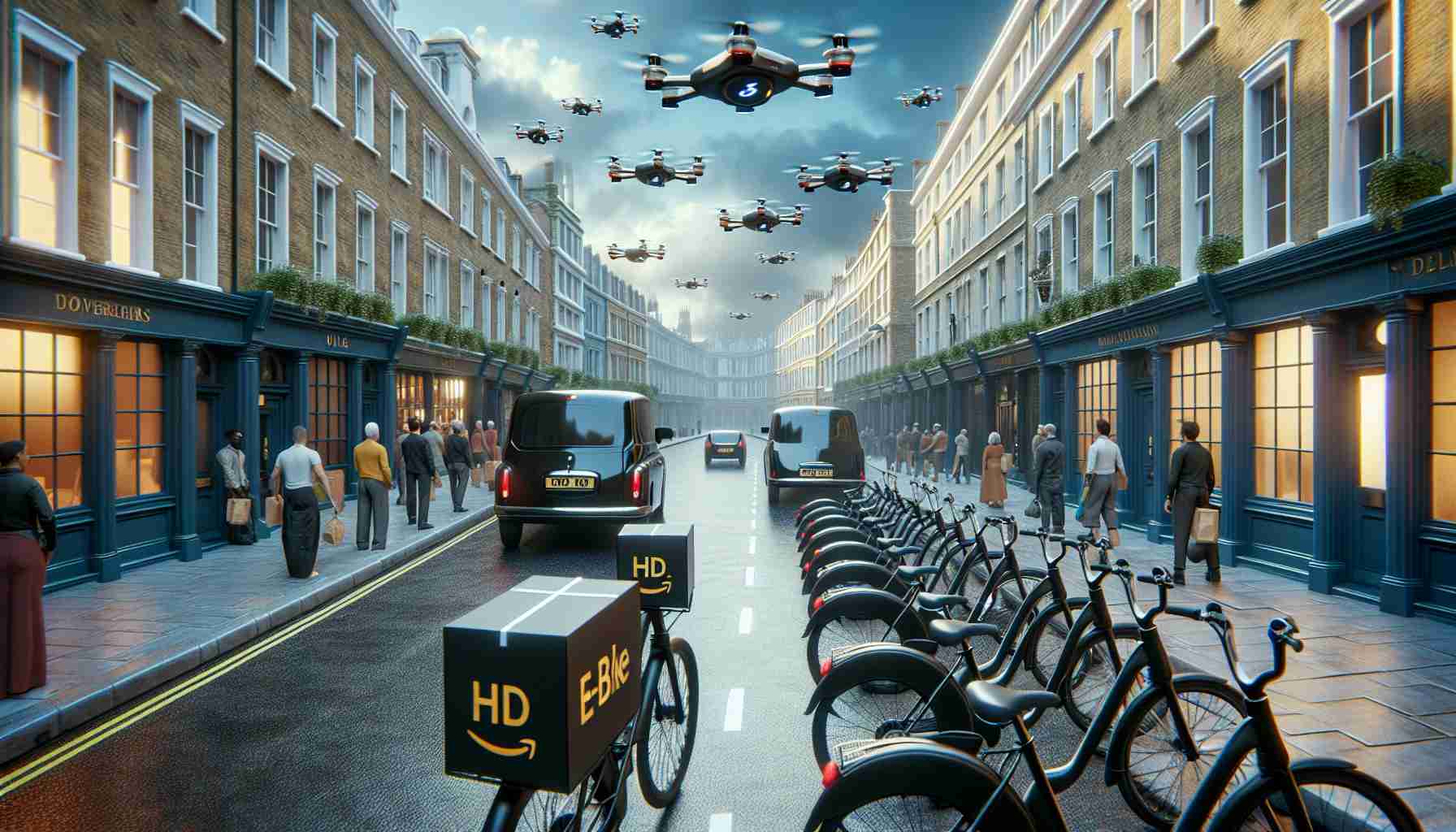
Production Halts as Military Demands Rise
In a striking development for the British e-bike industry, Brompton is facing significant delays in launching its highly anticipated G Line electric bike. This setback has emerged due to a critical component shortage, as resources have been increasingly allocated to military drone production for Ukraine.
Since the onset of the Russo-Ukrainian war, drones have become essential tools in modern combat, allowing for precise intelligence gathering and targeting. The controller required for the G Line, which facilitates its innovative electronic pedaling system, is being repurposed for military applications, leading to a two-month wait for eager customers.
Brompton’s chief executive, Will Butler-Adams, indicated that their supplier’s commitment to the Ministry of Defence’s drone requirements caused the company to lose its place in the production queue.
This situation coincides with an international effort to bolster Ukraine’s drone capabilities, with the recently formed Drone Capability Coalition pledging substantial resources to deliver thousands of drones. Defense Secretary John Healey announced that the UK alone has committed £15 million as part of this initiative.
The significance of drones in warfare is undeniable, having transformed strategies on the battlefield. The British Army’s recent recognition of drone racing as an official sport further highlights the growing importance of this technology, both in civilian and military spheres.
Brompton’s G Line Delayed: The Impact of Military Demand on E-Bike Production
Overview of Current Challenges in E-Bike Manufacturing
The British e-bike manufacturer Brompton is currently experiencing significant production delays with its eagerly awaited G Line electric bike. This interruption stems from a shortage of critical components, particularly due to heightened military demands stemming from the ongoing Russo-Ukrainian war. As the global focus shifts towards enhancing military capabilities, the civilian e-bike sector faces unintended consequences.
Key Features of the G Line Electric Bike
Despite the production setbacks, the G Line electric bike boasts several innovative features that distinguish it from competitors:
– Electronic Pedaling System: Designed for efficiency, this system automates the pedaling assistance based on user input.
– Compact and Foldable Design: Staying true to Brompton’s signature style, the G Line maintains its portability, making it ideal for urban commuting.
– Sustainable Mobility Solution: E-bikes are considered a greener alternative to traditional vehicles, aligning with global sustainability trends.
Market Trends and Insights
With increasing urbanization and a growing emphasis on sustainable transport solutions, the e-bike market is expected to continue expanding. According to recent market analysis, the global e-bike market size is projected to reach over $38 billion by 2025, growing at a CAGR of around 8.5%. This trend is reinforced by rising fuel prices and a push for eco-friendly transport options.
The Role of Drones in Modern Warfare
Drones have transformed modern warfare, providing key advantages such as real-time intelligence, reconnaissance, and precision strikes. The increasing reliance on drones has led to substantial investments by various governments, including the UK, which has committed significant financial resources to enhance its drone capabilities.
– Military Drone Production: The UK Ministry of Defence’s prioritization of drone technology has led to a repurposing of electronic components that are crucial for civilian use, such as those required for the G Line.
– Coalitions and Collaborations: The Drone Capability Coalition aims to streamline the production and distribution of drones across allied nations.
Pros and Cons of the Current Situation
Pros:
– Enhanced Military Readiness: Increased drone production enhances national security.
– Technological Advancements: The focus on drone technology could lead to innovations that could eventually benefit civilian applications.
Cons:
– Consumer Delays: E-bike enthusiasts may face significant delays in receiving their products.
– Resource Allocation: Civilian sectors may struggle as resources are diverted to military needs.
Future Predictions and Innovations
As the landscape of both military and civilian technology evolves, future predictions suggest that:
– Integration of Technologies: Innovations in drones may lead to advances in e-bike technology, improving efficiency and the user experience.
– Sustainable Production Practices: As public awareness of sustainability grows, manufacturers may seek more eco-friendly methods of production that do not compromise the availability of materials for civilian products.
Conclusion: A Shifting Landscape
The intersection of military demands and civilian manufacturing, particularly in the e-bike industry, reflects the broader implications of geopolitical events on everyday products. As Brompton grapples with these challenges, consumers will need to remain patient, while potential advancements in technology may arise from the current circumstances, ultimately benefiting both sectors.
For more insights into the evolving e-bike market, visit Brompton’s official site.



